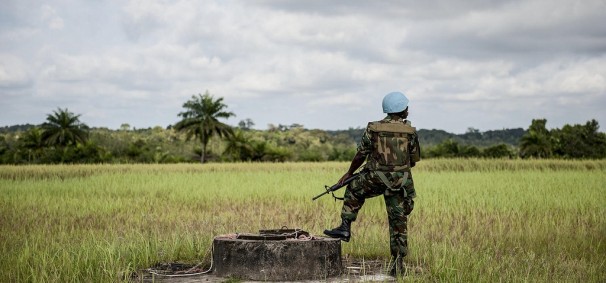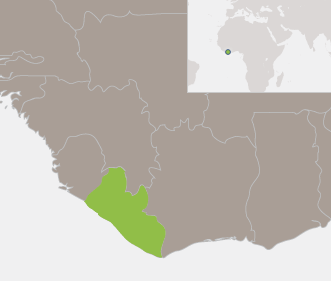The Centre for Security Governance is pleased to present its SSR Country Snapshot: Liberia on its SSR Resource Centre project website. Click here to see the full version.
SSR Snapshot: Table of Contents
1. SSR Summary
2. Key Dates
3. Central SSR Programs/Activities
6. Major Civil Society Stakeholders
7. Key Domestic Government Actors
-
1. SSR Summary
Liberia’s civil war has become one of the defining features of its modern history. Following decades of misrule, Liberia spent 15 years engaged in two bloody civil wars that killed more than 200,000 people and displaced another million (Human Rights Watch, 2013). Fighting came to an end in 2003 with the signing of a Comprehensive Peace Agreement (CPA), which called for an immediate ceasefire, the disarmament of all combatants, the formation of a transitional government, and creation of a truth and reconciliation commission (International Crisis Group, 2011). The CPA also called for the complete restructuring of the country’s two main security institutions, the Liberian National Police (LNP) and the Armed Forces of Liberia. By the end of the war, both institutions were widely viewed as sources of insecurity and misery for Liberians across the country, owing to 14 years of predatory behavior and a general blurring of the distinction between security and politics (Search for Common Ground and SIPRI, 2011).
Initial security sector reform (SSR) efforts began in 2004. At that time, the United Nations Mission in Liberia (UNMIL) moved to reform the Liberian National Police, even as early planning was made to disband, demobilize, and reconstitute the army. Overall SSR programs have had mixed results. The complete disbanding and rebuilding of the former Liberian army has been generally successful, while efforts to reform the police and other major security actors have faced greater challenges. The bold approach adopted to reform the army was made possible largely due to a strong national consensus and the presence of a large international UN presence. However, the same factors have not enabled such bold action with regard to restructuring Liberia’s other security institutions (International Crisis Group, 2009).
Currently led by Africa’s first elected female president, Ellen Johnson Sirleaf, Liberia benefits from significant investments from bilateral donors and international organizations, making the country largely stable. However, as the UN mission begins to draw down its presence, Liberia’s security institutions are faced with the task of ensuring the country’s political stability and reviving their deeply degraded image. Though significant SSR gains have been made in the last several years, these have all been accomplished while UNMIL exercised its role as the country’s main guarantor of peace. Liberia’s national security institutions are increasingly able to cope with some of this work. But the country’s security sector is still not currently able to function without considerable external support (International Crisis Group, 2011). Moreover, Liberian democracy remains fragile, with a polarized politics tinged by corruption, nepotism, and impunity and an economy still not open to all Liberians.
The full SSR Country Snapshot can be accessed here.
Tags: Comprehensive Peace Agreement, Military Reform, Police Reform, SSR






 Visit the Centre for
Visit the Centre for